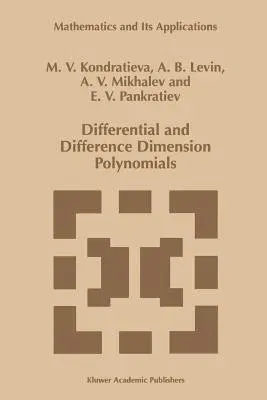Alexander V Mikhalev
(Author)Differential and Difference Dimension PolynomialsPaperback, 6 December 2010

Qty
1
Turbo
Ships in 2 - 3 days
In Stock
Free Delivery
Cash on Delivery
15 Days
Free Returns
Secure Checkout
Part of Series
Mathematics and Its Applications
Part of Series
Mathematics and Its Applications (Closed)
Print Length
422 pages
Language
English
Publisher
Springer
Date Published
6 Dec 2010
ISBN-10
9048151414
ISBN-13
9789048151417
Description
Product Details
Book Format:
Paperback
Country of Origin:
NL
Date Published:
6 December 2010
Dimensions:
23.39 x
15.6 x
2.29 cm
ISBN-10:
9048151414
ISBN-13:
9789048151417
Language:
English
Location:
Dordrecht
Pages:
422
Publisher:
Weight:
612.35 gm

